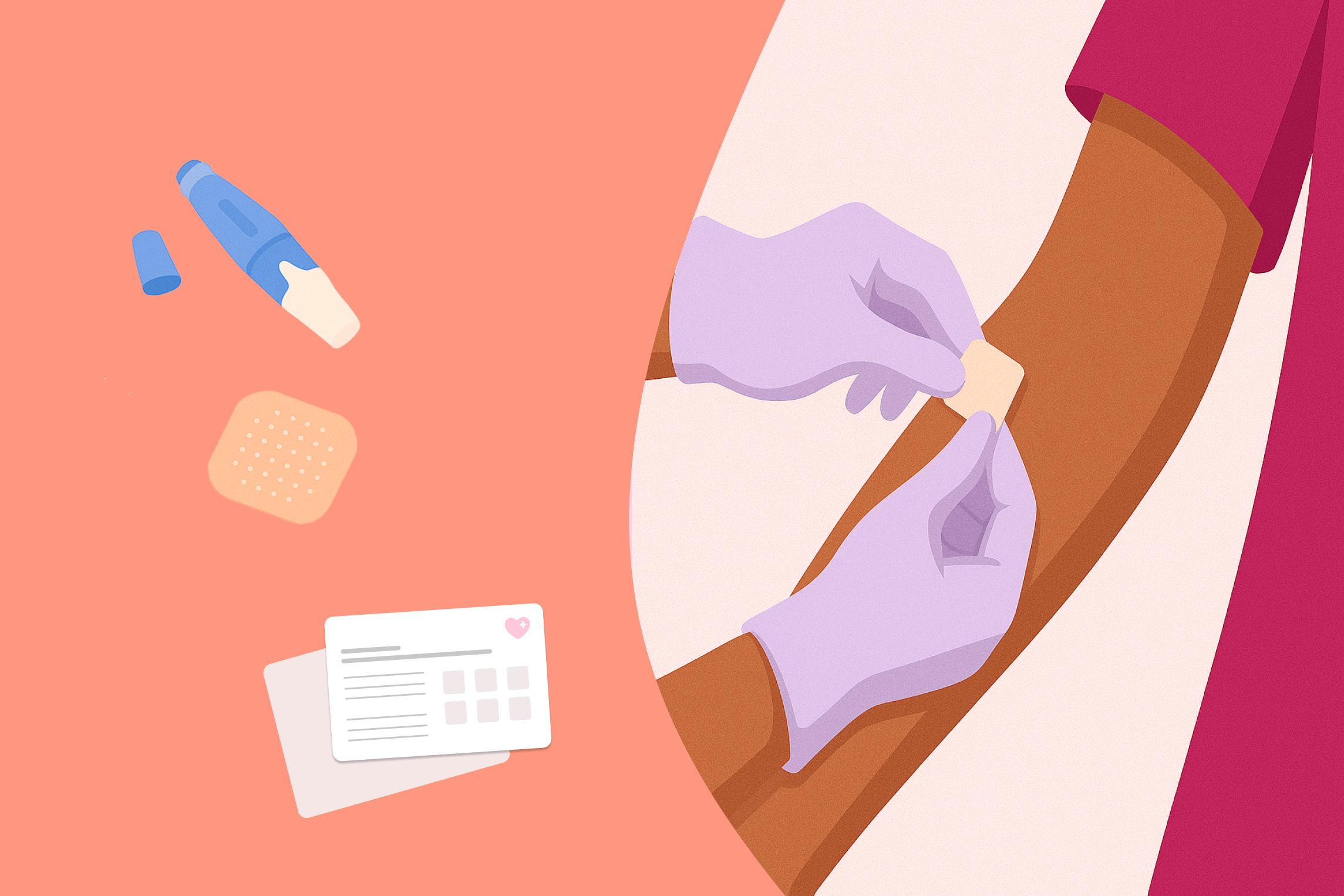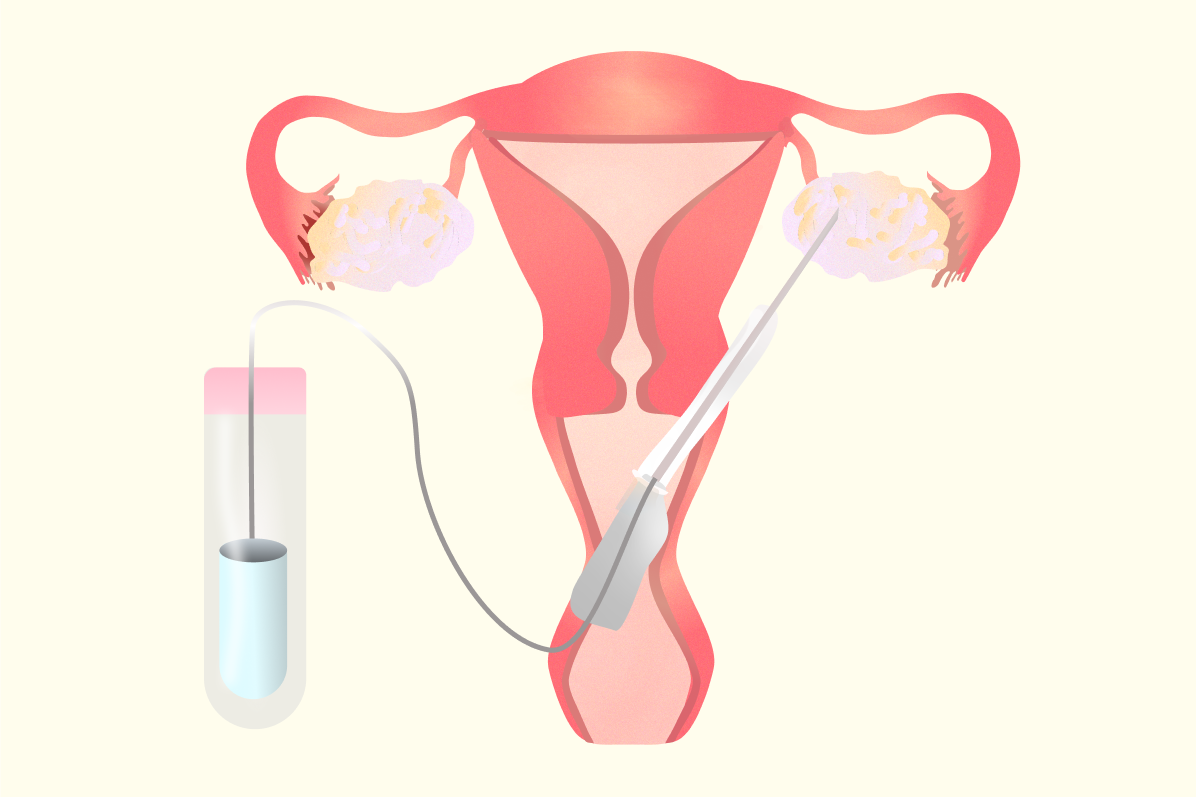In an eggshell...
- Freezing eggs is a method to preserve your fertility, for your particular page. On the other hand, freezing embryos requires sperm, and in a way, freezes your possible future offspring
- The cycle lengths, medications used, and procedure differ- for freezing eggs and embryos
- The decision to either freeze eggs or embryos- is ultimately down to you, your health and personal preference!
Suppose you've scoured the internet for any terms related to fertility preservation, or procedure. In that case, you may have come across the two most common ones: egg freezing and the other, embryo freezing.
And if you've wondered: Hmm, that does sound a little similar.. you're not the first.
One of the methods is a way to preserve your fertility. Imagine you're in your 20s and you have the capability to preserve your genetics and your fertility during that particular age.
And the other method is a way to preserve your future offspring but in the form of small, living cells, frozen away until use. But if you're wondering- which one is right for you, and which procedure you should go for, this article is for you.
Read on to find out!
Preserving Fertility: Eggs or Embryos?
Here's a small, simple breakdown of the two processes, before we get down to their differences.
Egg freezing to preserve fertility
This is a common procedure, done for various medical and personal reasons, known as social or elective egg freezing 1. The entire idea here is to preserve fertility at younger ages when your genetics is also at its best!
That is because as we age, the genetics behind our fertility, and ability to conceive becomes a little more complex.
So how does egg freezing work?
In egg freezing, you will be put on a medicated cycle solely to ensure more eggs grow in that cycle. Then the growth and development are monitored, until the egg retrieval day.
On the egg retrieval day is when you’ll be under anaesthesia and the doctors get to work. With their equipment and an ultrasound probe, they puncture the follicles in the ovaries, and aspirate the eggs. These eggs then travel from the ovaries, in a tiny wire-like tube, until they’re finally settled in a laboratory tube (It’s like a fun water slide from the ovaries till the lab tube). This tube is what reaches the embryologist, who then begins their “find the egg” hunt, by pouring the fluid into dishes, and setting apart the eggs to be frozen.
After that, the embryologist checks for any mature eggs. The mature ones are then frozen in liquid nitrogen.
Embryo freezing to preserve fertility
Embryo freezing is also a common procedure but it’s done to preserve the fertilised product of an egg and sperm. In a way, this preserves you and your partner's fertility- or to be more precise, the fertilised product, a tiny ball of cells capable of growing into a baby.
How does embryo freezing work?
Embryo freezing has two steps- retrieving the sperm and egg out of the body. For the egg, an egg retrieval is done, and for the sperm, a sample is requested via ejaculation.
Then, these are fertilised via IVF or ICSI, which are procedures that co-incubate the sperm and egg together or inject a sperm inside the egg. The result? A mix of two genetic components, growing and dividing into cells to form the embryo.
At day 5-7 of embryo growth, it has to be either transferred- or frozen. This is because labs are only equipped with media that allows embryos to grow until that stage. In cases of embryo freezing, they are frozen away, either earlier during day 2-3 or on either day 5,6 or 7 until future use.
Understanding the Differences: Egg vs Embryo Freezing
👨🎓 Eligibility
🥚Egg freezing: People who menstruate looking to preserve their fertility, are facing infertility, have to undergo ovarian tissue freezing, or patients prior to chemotherapy, and egg donors.
🐣Embryo freezing: People undergoing fertility procedures such as IVF/ICSI.
⏰ Duration
🥚Egg freezing: 2-4 weeks, with medication and an egg-retrieval surgery. Only mature eggs are frozen.
🐣Embryo freezing: 2-6 weeks, or an extended duration depending on the growth of the embryo, the decision of the patient and the day/stage at which it is frozen
💰 Cost
🥚Egg freezing: Cost of an egg freezing cycle ranges from £5000-7000, including the cost of storage for one cycle
🐣Embryo freezing: Cost of an embryo freezing cycle depends on the clinic, but it ranges from £5000-9800.
⏭️ Next steps
🥚Egg freezing: The next step after egg freezing is ICSI (Intra cytoplasmic sperm injection) with your partner’s semen sample or donor sperm. If you are an egg donor, then the donation process is handled by the clinics.
🐣Embryo freezing: The next step after embryo freezing is a timed transfer to the uterus called Frozen embryo transfer. If you are an embryo donor, then the clinic will handle the embryo donation process.
💪 Effort
🥚Egg freezing: Honestly, it’s not just about clinics and appointments with these procedures. It requires mental and physical effort from your end. There are medications to be taken on a daily basis and the physical effort of going through the egg retrieval process.
🐣Embryo freezing: The procedure requires mental and physical effort from you and your partner's end. Specifically, on your end, there are medications and egg retrieval. From your partner's end, it's providing the semen sample.
❗Risks
🥚Egg freezing: If you have PCOS (Polycystic ovarian syndrome) or are at risk of overstimulation due to medication, you may experience OHSS (Ovarian Hyper Stimulation Syndrome). Apart from that other side effects and risks include pain at areas of injection, or egg freezing failure, which is very rare.
🐣Embryo freezing: Overstimulation, chance of the cycle being called off if there are issues from the egg retrieval or semen retrieval part.
💊 Side effects
🥚Egg freezing: Minor hormonal fluctuations due to medications, headache, bloating, slight pain at injection site, soreness
🐣Embryo freezing: Hormonal fluctuations due to medications, slight weight gain, bloating, headache, mood swings, pain at injection site
💯 Success rates
🥚Egg freezing: Cycles with frozen donor eggs are more successful than self-eggs. There are no exact statistics available on this in the UK.
🐣Embryo freezing: Hormonal fluctuations due to medications, slight weight gain, bloating, headache, mood swings, pain at injection site
👶 Live birth rates
🥚Egg freezing: 18% with self-eggs and 30% with donor eggs as per a 2015 HFEA report, but newer studies point at 34%, rising to 45% in women who had frozen their eggs before the age of 36.
🐣Embryo freezing: 27% for frozen embryo transfer cycles, as per an HFEA publication in 2021, with newer figures yet to be recorded.
🫙 Storage
🥚Egg freezing: 55 years
🐣Embryo freezing: 55 years
Egg freezing vs embryo freezing: The Pros and Cons
Egg freezing: What are the pros and cons?
Embryo freezing: What are the pros and cons?
Egg freezing vs embryo freezing: which is right for you?
Ultimately, it comes down to your choice, combined with a plan and a talk with your healthcare provider. But to help you out, here's a simple self-evaluation checklist that can help you decide:
and if you're considering embryo freezing, then:
While this isn't an exhaustive checklist, this should give you a brief idea of the things to expect, in your egg or embryo freezing cycle. With this checklist, we hope you also understand the important things that you need within, and around you to partake in the process of preserving your fertility.
How Amilis can help you with your fertility goals
Be it egg freezing or embryo freezing- we understand that it's a carefully thought-out decision between you and your healthcare provider.
But once you make your decision, choosing the right support and knowing the right information can make your egg freezing cycle a lot less of a maze.
That’s why at Amilis we decided to make the egg freezing journey accessible and affordable for all. And part of it is providing the right resources and support.
In fact, when you opt to start your fertility journey with Amilis, here’s what you get:
- Free consultations with top fertility clinics in the UK
- Free consultations with expert doctors
With zero waiting times, you get to consult expert specialists and counselling at clinics. And if you’re just starting out your fertility journey, you also get:
- The option to book an AMH test (at just £80) or a full hormone fertility test (at just £130) anytime, at your convenience
- A personalised report on your hormone levels and what it could mean for your fertility
When you opt to use our free resources or book our tests, you also get a stellar support team (that’s us 👋) guiding you along at every step!
Figuring out where to get started? Book a test, or take our personalised fertility quiz to know more!








.png)

